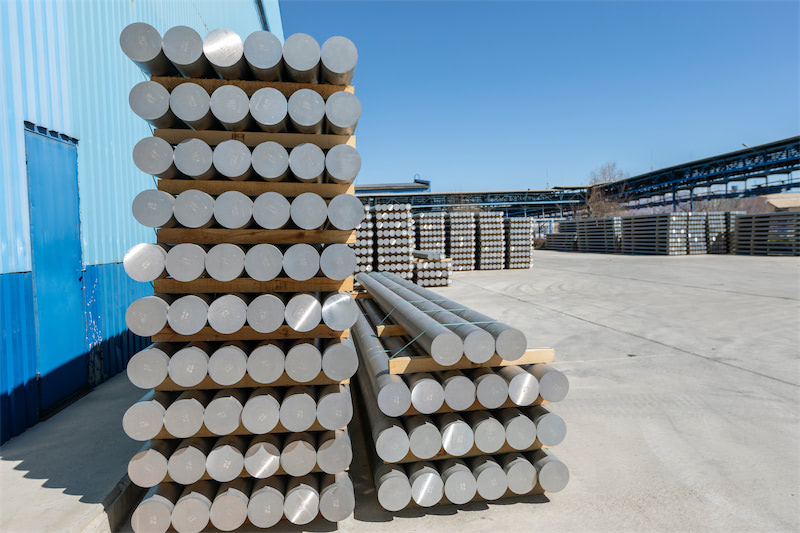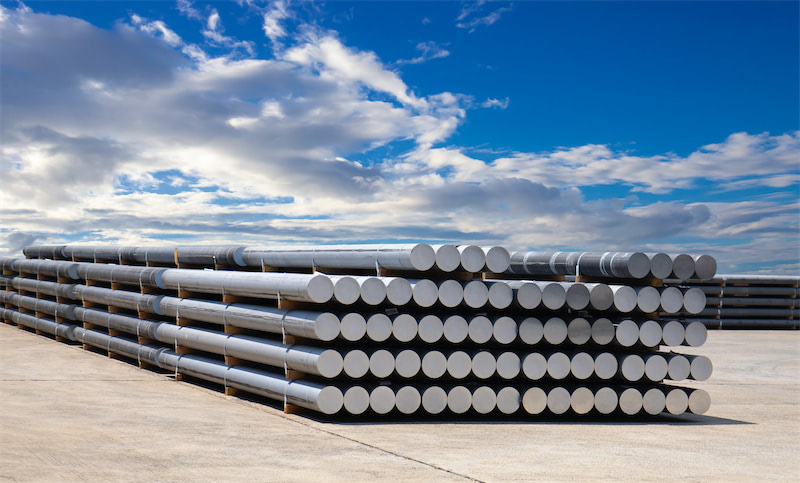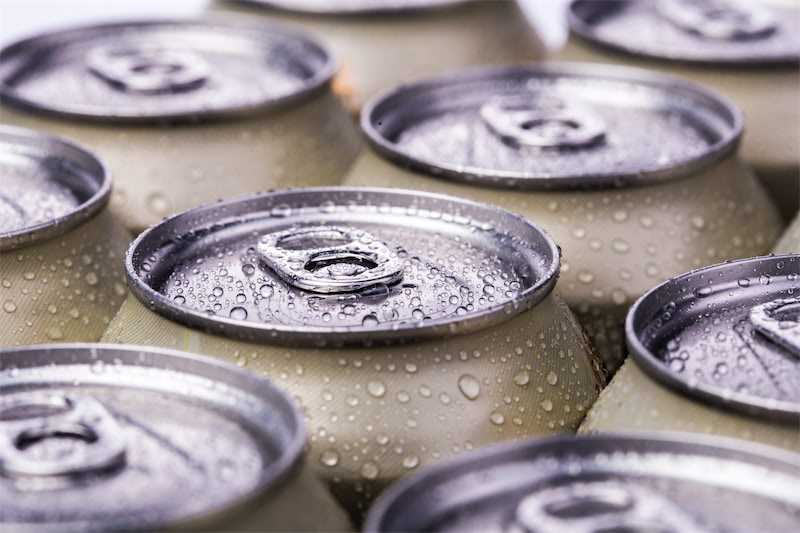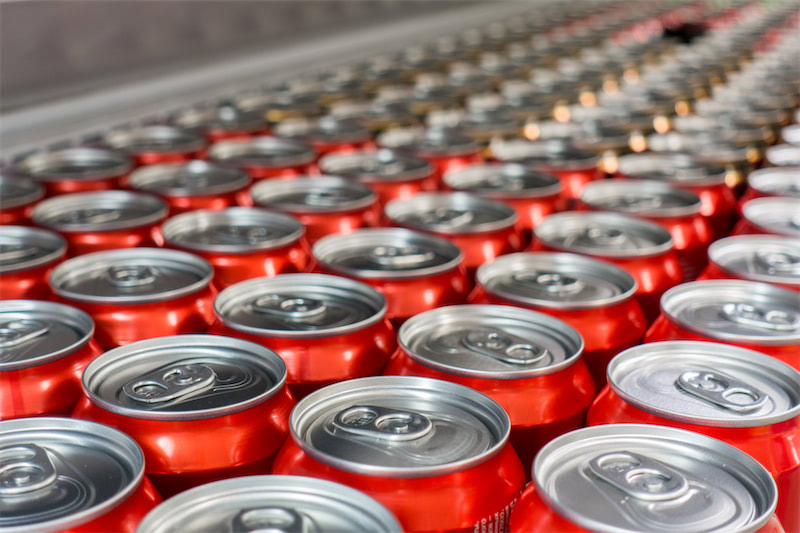SHANGHAI, Mar 3 (SMM) – China’s aluminium processing industry contracted sharply last month, as the outbreak of the COVID-19 epidemic kept plants shut until the second half of the month and reduced new orders.
The latest SMM survey showed that the composite purchasing managers' index (PMI) across manufacturers of aluminium sheet/plate and strip, foil, wire and cable, construction and industrial extrusion, primary and secondary alloy in China fell to 34.7 in February, the lowest since SMM began to conduct the monthly survey in May 2018. That was down 5 from January and stood above the 50-mark that separates growth from contraction for a third straight month.
A sub-index of production slipped from 20.6 in January to 19.7 while a reading of new orders plunged from 36.1 to 25.
Labour conditions remained tight amid travel restrictions with a sub-reading for employment falling to 41.8 from 49.9.
The aluminium wire and cable sector was the worst performer in February, with the PMI falling to 28.2 in February from 33.3 in January. Most of Chinese aluminium wire and cable remained closed until at least February 20, and labour issues deterred them from ramping up operations. New orders received from state grid operators and other projects in January and February dwindled due to the virus outbreak.
It is estimated to take two to four months for large aluminium wire and cable producers with sufficient orders to fulfill their orders, and they will recover to normal production following the return of more workers.
The toll from the virus on the aluminium wire and cable sector is expected to continue through the end of April, as construction sites remain suspended. Some aluminium wire and cable producers raised doubts on the magnitude of support from ultra-high voltage (UHV) projects this year and expected fewer UHV-related orders.
The hit on Chinese producers of aluminium industrial extrusion appeared to be softer, as the PMI for this sector edged lower to 43.3 last month, the highest among the seven aluminium processing sectors. While orders felt some negative impact and transport curbs slowed production recovery, industrial extrusion producers resumed work generally earlier than those of construction extrusions and saw better orders.
Activity across aluminium industrial extrusion producers is expected to improve substantially in March.
The PMI for aluminium construction extrusion producers, however, slipped to 31.4 from January’s 36.3, as orders from the domestic market reduced after the resumption of property and infrastructure projects in some Chinese regions was postponed to the second half of March and as some export orders were cancelled.
Labour issues forced some aluminium construction extrusion producers to delay their resumption to the first half of March, and restarted plants would not fully recover until March.
The PMI for the aluminium sheet/plate and strip sector fell from 45.3 in January to 38 in February, as large-scale plants scaled back operations and small and medium-sized ones remained shut until late February. Large aluminium sheet/plate and strip producers did not suspend production during the Lunar New Year holiday, with operating rates at 50-80% in February as some of them trimmed output due to the impact of the virus. Small and medium-sized aluminium sheet/plate and strip producers gradually resumed work after February 20, but have yet to recover to normal production due to the two-week quarantine rule on migrant workers. Reduced new orders and limited raw material procurement also kept them from recovering to normal as their clients have not fully recovered, either, and as logistical issues constrained shipments and slowed cash recovery.
Aluminium sheet/plate and strip producers are expected to see more than 90% of workers return by early March. That, coupled with logistics recovery, is expected to allow aluminium sheet/plate and strip producers to recover to normal this week. But they are not optimistic about orders in March.
Aluminium foil producers in China gradually reopened in late February, but overall production failed to mark a significant improvement from early February as road transport curbs tightened raw material supply and grew finished goods inventory pressure. Domestic orders for aluminium foil, meanwhile, were poor. Producers saw better demand from overseas market, and some of them postponed the delivery of export orders to early April as tight truck transport capacity and high costs. The PMI for this sector inched down to 32 last month, from 33 in January.
Aluminium foil producers are expected to continue to deplete inventories of finished goods in early March, while inventories of raw material are expected to recover to normal.
Large and medium-sized primary aluminium alloy producers in China trimmed or suspended production from the start of February, as the downstream consumer—aluminium wheel producers delayed their resumption by up to two weeks, and as their inventories of finished goods accumulated amid logistical constraints. The PMI for the primary aluminium alloy sector dipped to 40.2 last month.
The depletion of finished goods inventories is expected to continue through late March, before primary aluminium alloy producers stepping up operations. Profits on processing A356.2 thinned after price spreads between aluminium and silicon narrowed, which would subdue production of primary aluminium alloy.
Secondary aluminium producers reopened late, with small and medium-sized ones remaining closed until the end of February, due to manpower and road transport issues. The resumption of their clients was later, which reduced orders for secondary aluminium alloy and lifted inventories at producers. That partially contributed to the slow recovery of secondary aluminium producers.
The secondary aluminium sector is expected to return to growth in March on the back of the recovery of demand and raw material supply.



